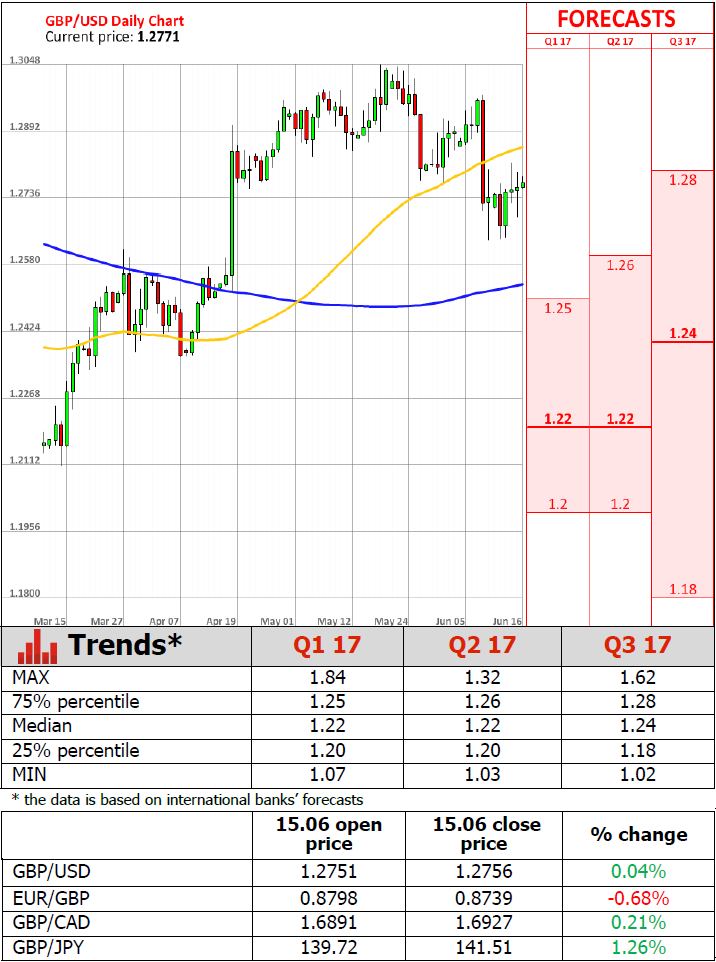‘A slowdown in household consumption, and GDP as a whole, had recently begun, and it was too early to judge with confidence how large and persistent it would prove to be.’ — Mark Carney, Bank of England
British retail sales dropped more than expected last month, pointing to high inflationary pressures driven by the weak Pound. The Office for National Statistics reported on Thursday that retail sales dropped 1.2% month-over-month in May, following the preceding month’s upwardly revised gain of 2.5% and falling behind analysts’ expectations for 0.9% drop. May’s fall suggested that the sharp rise in inflation after the country’s decision to leave the European Union started to put significant pressure on households that are the main GDP contributors. On an annual basis, retail sales climbed 0.9% during the reported month, whereas analysts anticipated a rise of 1.7%. Earlier this week, Visa reported that UK consumers cut their spending for the first time in almost four years in May. Later in the day, the Bank of England left its policy and interest rates at 0.25% but moved closer to the rate-rise trail, as three out of eight policymakers voted to raise rates, lifting the Sterling against other major currencies. However, some analysts suggested that the BoE would continue tolerating inflation above the 2% target for some time.

